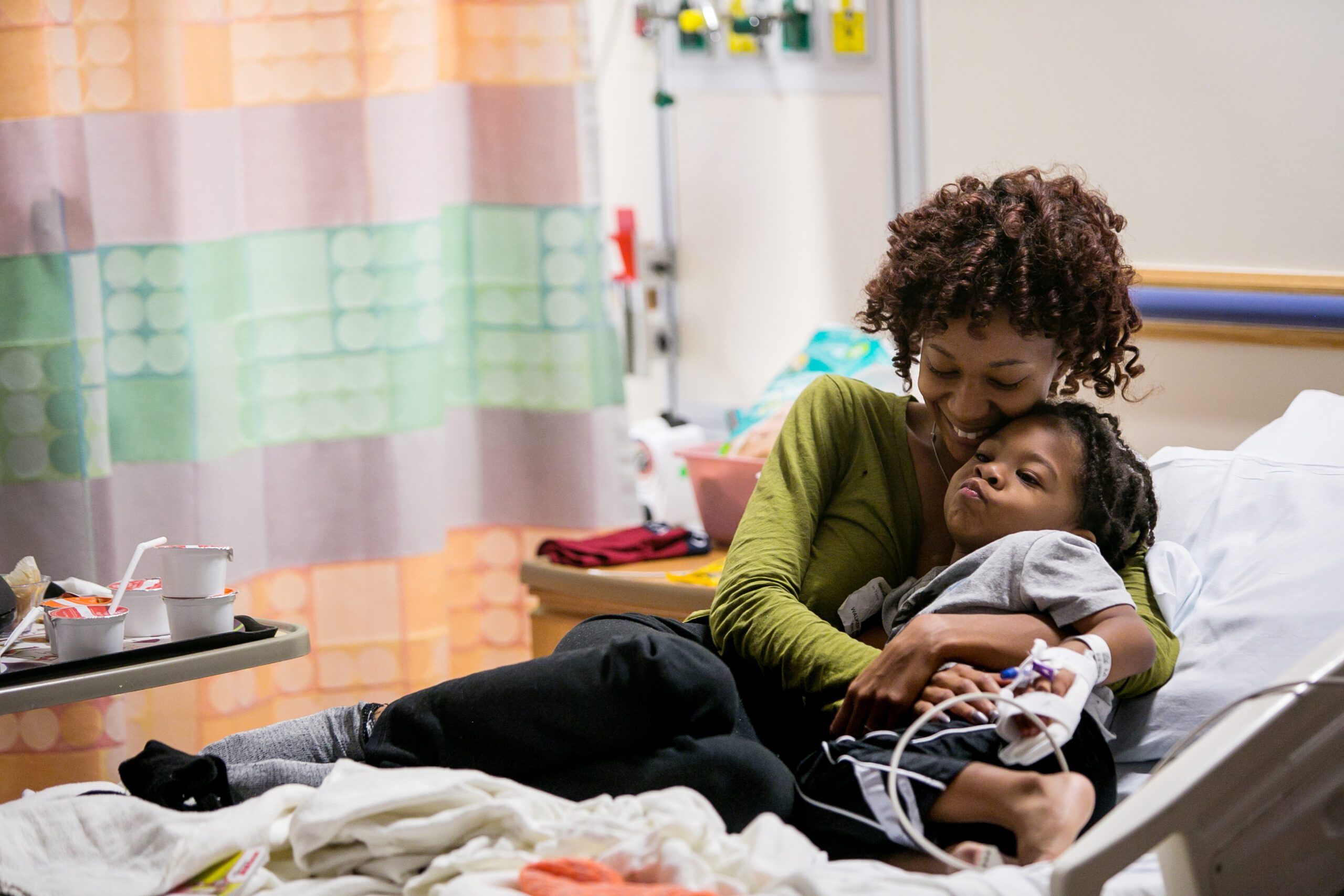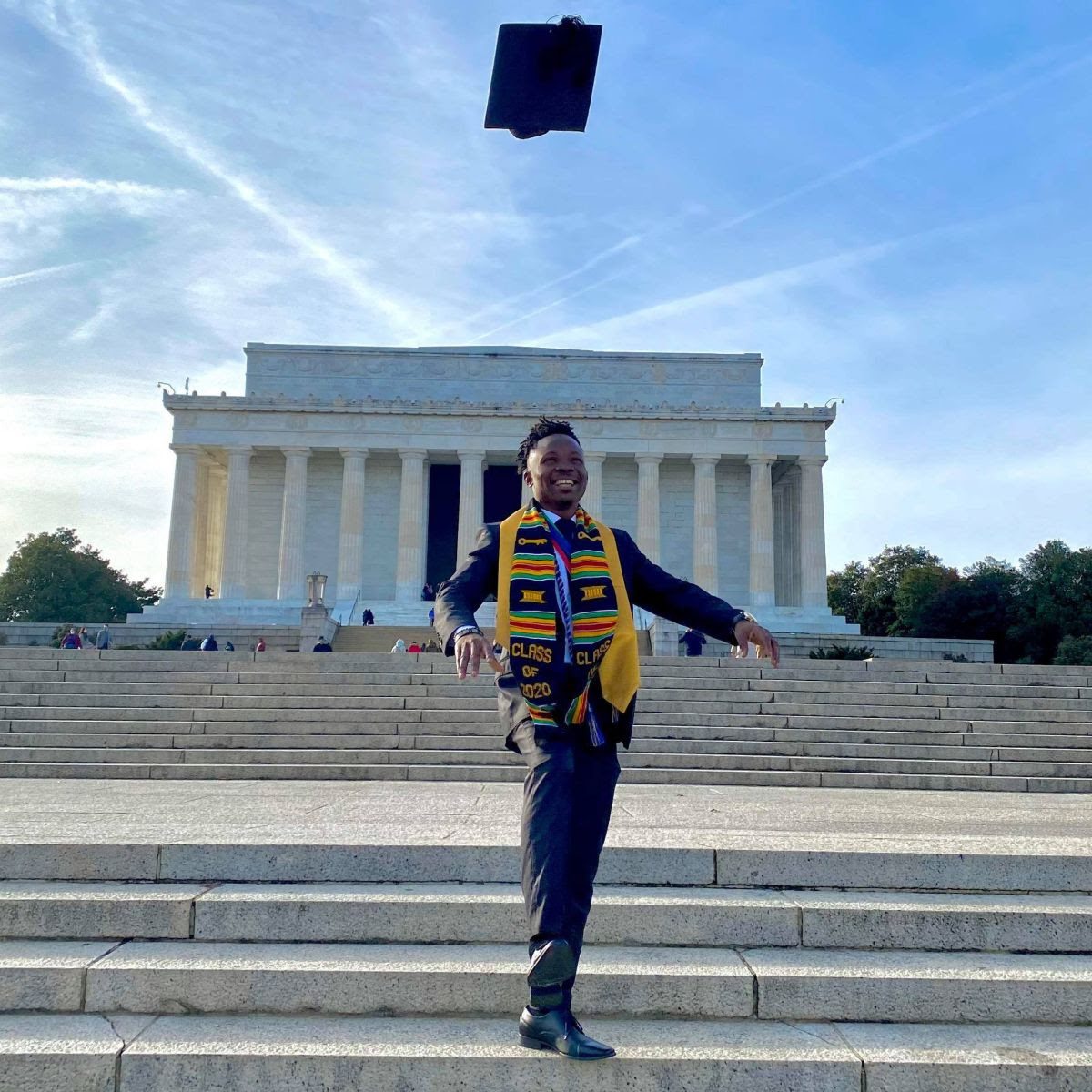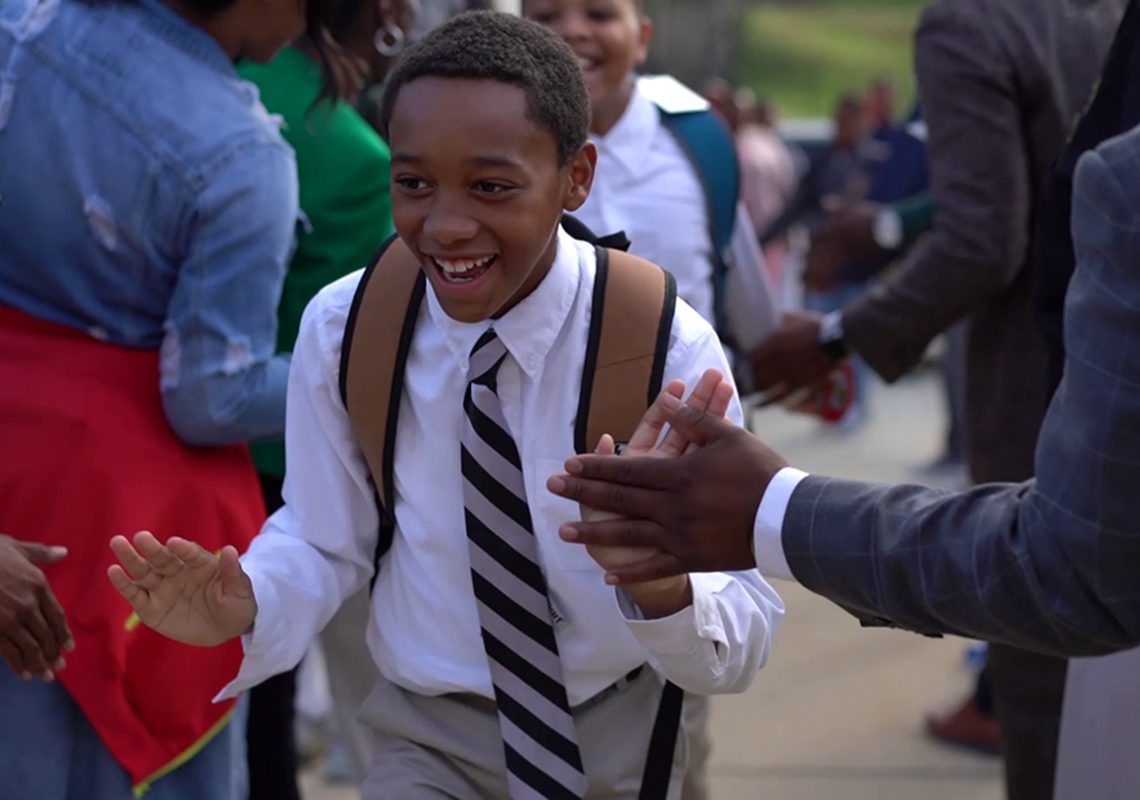Across Washington, DC, healthcare providers see more than 15,000 pregnant women and care for them during more than 12,000 deliveries each year. But medical care in DC can be inconsistent, with residents often facing barriers to accessing quality, culturally attuned perinatal care. In response to this challenge, the Clark Foundation established the Parent-Child Health Initiative (PCHI) in 2020 to ensure there is no wrong door for care during pregnancy, childbirth, postpartum and the first three years of children’s lives. “The disparity in maternal health treatment and outcomes stood out to us, not only because of the gaps but because we believed we could make an impact with the right amount of investment and partnership with the right organizations,” said Foundation President and CEO Joe Del Guercio.
As the preeminent pediatric healthcare system in the city, and a long-time partner whose relationship with the Clark family and the Foundation spans decades, a significant investment in Children’s National was critical to the Foundation’s strategy of improving maternal and child health outcomes. In 2020, the Foundation committed $36 million to launch the Clark Parent & Child Network, which provides access to a comprehensive set of innovative clinical and research interventions to support child development.
Within the Clark Parent & Child Network, the Prenatal-Neonatal Pillar and the Infant-Toddler Pillar focus, respectively, on mental and behavioral health for expectant and new parents and for young children. Each pillar supports an array of programs that create a seamless approach to an aspect of well-being that is becoming increasingly understood as crucial for families. One program within the Prenatal-Neonatal Pillar, the DC Mother-Baby Wellness (DC MBW) Program, provides universal maternal mental health screening during and after pregnancy, interventions for those identified as at risk, and early interventions for children whose mothers experienced mental health disorders during their pregnancy. The Infant-Toddler Pillar includes the Early Childhood Behavioral Health Program, a comprehensive, community-focused clinic that also trains early childhood mental health clinicians with the goal of expanding their numbers locally to meet the growing needs of families.
Increasing Access to Critical Pregnancy and Postpartum Services
Stress, depression, and anxiety are the most common complications of pregnancy, affecting up to 25% of women during pregnancy and/or in the first year after childbirth. For women in under-resourced communities, stark disparities cause an even greater burden, with 40% experiencing maternal psychological distress. But these challenges often go undetected and undertreated, potentially impairing fetal growth and brain development, causing premature birth, and affecting a new mother’s attachment to her infant. These challenges, in turn, can cause lifelong health repercussions for children and result in similar challenges when children grow up and start their own families, thereby perpetuating an intergenerational public health problem.
The DC MBW Program, led by Dr. Catherine Limperopoulos, addresses these and other concerns during pregnancy and postpartum. It supports DC’s expectant and new mothers experiencing mental health concerns by providing a holistic array of services, including no-cost screenings; education; care coordination to address social drivers of health, such as unstable housing, food insecurity and interpersonal violence; individual and group therapy; and supportive connections to others with similar experiences.
A network of 11 partner birthing hospitals and federally qualified community health centers refer patients to DC MBW. Thanks to the Clark Foundation investment, Children’s National can provide additional services, including access to perinatal psychologists and psychiatrists, as well as social workers, who provide services for women who consider Spanish their primary language.
These referrals and no-cost services are intended to remove common barriers to health care. “We’ve learned that sometimes moms will not prioritize their own care, but they will always come to their baby’s well-child appointments. It really offers us a unique opportunity not only to check in with the babies, but to also pause and check in with the moms and make sure that they’re doing okay,” said Dr. Limperopoulos. “We’re ensuring that healthy moms can have healthy babies, and creating a unique, integrated health model in caring for the moms and the babies under a single roof.”
Up to 70% of women seeking services from DC MBW received a positive score for clinical depression at the time of referral. Within several weeks of interventions and receiving wraparound services, Dr. Limperopoulos’ staff reported a dramatic drop in these symptoms, translating into improved health and wellness that, in turn, enables women to better care for themselves and their babies.
“The demand has been incredible and has exceeded our initial expectations. It is quite humbling for us as a program to be able to appreciate the extent of unmet need in DC and to be in a position where we can really make a difference in improving the lives of moms and babies,” Dr. Limperopoulos said.
That high demand has driven the program’s leaders to emphasize training as many providers as possible across multiple disciplines to meet the complex needs of all women who seek services. Providers address the social drivers of health, evaluate women’s health and check for typical fetal development. Building a larger cadre of trained providers also wards against staff burnout while allowing DC MBW to serve more patients than originally anticipated.
“I’m most proud of the multidisciplinary team that we have developed. We built this program and this team from ground zero, after the Clark investment,” Dr. Limperopoulos said. “It’s exciting to describe the successes of the DC Mother-Baby Wellness Program, the impact it’s had in improving the health and wellness of moms and babies within DC, and to explore ways in which this program and its successes can be expanded and adapted to benefit other programs within our country.”
Providing High-Quality Behavioral Healthcare for Young Children and Their Families
Families in Washington, DC, referred for early childhood mental health care often face a frustrating process. With a dearth of providers offering evidence-based mental health care to young children, families languish on multiple wait lists, some for over a year, before obtaining treatment. When they finally obtain care, it is often fragmented, with under-resourced families particularly likely to fall through these cracks. Moreover, primary care providers can be reluctant to conduct screening for challenges when referral options are limited.
When leading medical staff at Children’s National were collaborating with the Clark Foundation about an investment in the hospital, they discussed the importance of children’s mental health and parent-child relationships in creating thriving, happy and successful adults, as reflected within the Infant-Toddler Pillar led by Dr. Lee Beers.
To address these mental health needs, Children’s launched the Early Childhood Behavioral Health Program. Directed by Dr. Bhavin Dave and Dr. Leandra Godoy, the program operates out of a specialty, community-engaged clinic that aims to expand access to childhood mental health care, provide comprehensive quality services, and encourage primary care physicians to refer their patients for timely and quality interventions. Through this program, training for early childhood professionals promotes greater understanding of the mental health field and reduces stigma. These trained staff members are embedded in communities, ensuring that the clinic’s efforts accurately reflect residents’ needs and desires.
Although this work focuses on young children, Dr. Beers emphasized that services benefit the entire family. For example, if a child’s behavior prevents him or her from attending daycare or preschool, a parent then cannot work, compounding the stress for everyone. “So it impacts not just the child because he’s now not getting the experience and social relationships at preschool, but also the family’s well-being,” she stated. “We don’t provide direct mental health services to parents, but it’s very intertwined. It’s really dyadic care, taking care of both the parent and the child.”
One of the critical first staff hired for the new program was an intake coordinator. “Families are contacting us often at the moment of highest distress, and this gives them a touch point,” Dr. Godoy said. By speaking first to a social worker, families can connect with additional resources even before coming to the clinic.
Other resources that the Early Childhood Behavioral Health Program offers include support groups and webinars for parents whose children may not need intervention but who want to learn more about early childhood development, and groups for children to learn social skills. “Families can get a one stop shop for a lot of different needs in a way that they couldn’t before,” Godoy said.
Both doctors said that the Clark Foundation investment isn’t just providing care to increased numbers of families but transforming the field of early childhood behavioral health in DC because it prioritizes expanding the workforce.
“It’s such an important time of life because 90% of a child’s brain development is in the first five years of life. Being able to intervene and support a family in those early years really has a significant impact,” Dr. Beers said. “But the workforce who are trained to deliver those services is very small. Before the Clark investment, clinical services were available to a small extent but the gift from the Clark Foundation has turned it into a comprehensive, broad-reaching program.”
Supporting Maternal and Child Health Strategies Outside the DC Region
Looking ahead, DC MBW aims to further raise awareness of its services locally and beyond so that perinatal care moves seamlessly from caring for pregnant women and unborn babies to new mothers and their growing babies “in a way that is comprehensive, integrated, culturally attuned and that truly meets the needs of that mother-baby dyad,” said Dr. Limperopoulos. She views the program as a model that can be replicated not only nationally but globally, and she envisions using its findings to promote advocacy and policy changes to ensure universal screening for maternal mental health problems, increased access to prenatal and post-partum behavioral resources and interventions, as well as seamless payment for providers.
The founders of the Early Childhood Behavioral Health clinic aspire to seed the city with satellite locations, equipped for both the safety of young children and for support groups. They also believe that their program’s focus on training clinicians in this area will spread the approach of Children’s National around the country as these doctors enter the field. “One of the things that we’re really proud of is that we’ve managed to grow by having folks who want to stay on at Children’s, but others go off to other places, and so they’re spreading what they’ve learned with us,” Dr. Godoy said.
“I think when we look back at the Foundation’s 10-year strategic sunset, the partnership with Children’s National will be a big part of Mr. Clark’s legacy. Their effort and hard work and initiative in maternal and child health has really taken off,” said Del Guercio. “We couldn’t be prouder of the impact that it’s already made and the impact it will make going forward.”



